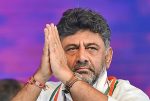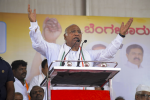
COVID deaths are now barely mentioned in the media. That changes the very nature of grief
PTI, Jun 23, 2022, 9:49 AM IST

Armidale: About a year ago, many of us were in lockdown. State premiers fronted the media every day to reveal how many people had tested positive for COVID and how many people had died.
The number of deaths were prominent in news bulletins. We would lament the sadness of it all, until the next day’s data arrived.
A year later, Australia has an average of about 50 COVID deaths a day. We have had more than 9,300 COVID deaths since the pandemic began. Yet, these deaths are barely mentioned in the Australian media.
We seem to have lost the collective opportunity to acknowledge lives lost. And when we don’t talk about these traumatic deaths, there’s a long-term impact on those left behind.
Is traumatic loss different? All grief is hard to cope with. But when grief is combined with the type of trauma we’d see with a violent or sudden death, we can see something different over the long term.
If the media doesn’t discuss the losses, this can complicate the traumatic grief and lead to something called prolonged grief disorder.
This type of grief can extend far beyond the first year after the loss. People yearn for their life before their loved one was taken away. This impacts their capacity to keep moving forward, long after the death occurs.
How does this apply to COVID? People who have lost a loved one to COVID can feel lonely and isolated. They can also develop prolonged grief disorder.
It can be traumatic to say goodbye under hospital restrictions or losing the opportunity for grief rituals – viewings, funerals and sharing the loss with others – despite many others going through a similar loss.
People who develop prolonged grief disorder after losing a loved one to COVID may find they have more severe and prolonged grief responses. This can lead to adverse outcomes such as an increased pre-occupation with their grief, intense emotions and difficulty connecting with their life after the loss.
But if we look to Australian media, it appears the community is no longer focused on the faces of those lives lost.
What has the media got to do with it? Media coverage has long been intertwined with how we grieve.
When the media publicises first-person accounts of people’s lives, images or faces of people who died, or continually updates the toll of lives lost, this has an impact on those left behind, especially if there was a sudden and traumatic death.
This type of media coverage allows viewers to collectively empathise with people left behind, placing stories against the abstract statistics of death. The community can share in that sorrow vicariously and the media exposure increases the community’s understanding of what that loss means.
We’ve seen examples of this on social media, for instance with the @FacesOfCOVID Twitter account, which pays tribute to five or six people a day who have died of COVID.
However, we haven’t seen the equivalent tributes, on a daily basis, in the mainstream media.
If we don’t pay tribute to lives lost, this can affect people left behind in many ways: — Fewer shared images, names or acknowledgments limits how many people hear about someone who’s died, so fewer can express their grief.
— Families lose the chance to say to others “this is the person I have lost” to show people their pain.
— People who have also lost someone don’t get to see others bearing the same pain.
Each traumatic loss affects many others More people are impacted by a sudden or traumatic loss, such as a homicide or suicide, than we once thought. One study suggests as many as 135 people are significantly affected. For each COVID death, another study shows up to nine people are impacted.
Irrespective of whether there are nine or 135 people feeling the ripple effects, the number of deaths we have experienced in Australia tells us thousands are living with the grief of a traumatic COVID death.
This grief will shape people’s experiences of the world, dulling possibilities for joy, making it difficult to accept the finality of a loss. This will be exacerbated by how little we focused on those losses as a community.
A lack of media coverage of COVID deaths means we have also lost moments of shared empathy – a space for others to see people who are travelling the same path.
(By Sarah Wayland, Senior Lecturer Social Work, University of New England Armidale. The Conversation)
Udayavani is now on Telegram. Click here to join our channel and stay updated with the latest news.
Top News
Related Articles More

World Malaria Day: WHO calls for equitable health access

What role does genetics play in breast cancer? How can genetic testing help with early breast cancer diagnosis?

Father’s diet can affect anxiety in sons, metabolism in daughters: Study in mice finds

Low back pain, depression, headaches main causes of poor health: Study

Surgical options for Parkinson’s disease
MUST WATCH
Latest Additions

World Malaria Day: WHO calls for equitable health access

WATCH: 5 runaway military horses cause mayhem in London

FIR filed over BJP’s social media post allegedly promoting hatred and enmity: EC

Can’t control elections or pass directions on basis of suspicion: SC tells EVM critics

Amitabh Bachchan receives Lata Deenanath Mangeshkar Puraskar
























